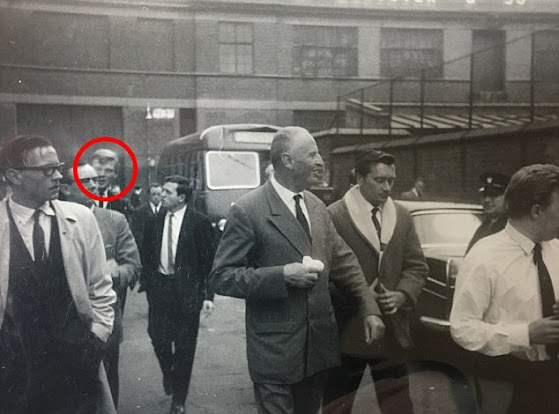If you’re old enough, you’ve seen it on TV – e.g. Peak
Practice (Dr Jack: ‘I’ll just pop over the moor and see how Mrs Bassenthwaite’s
headache is doing’) or even Dr Finlay’s Casebook (Dr F: ‘And while I’m here I
may as well take a look at your cat.’)
Now, not only does the GP not come to you, it’s getting hard
to contact the GP for an appointment.
A couple of days ago, a doctor advised my wife (via
telephone, of course) to have this and that checked. So she called the group
practice, and a recorded message said that there were no appointments left for
that day and – well, that was that.
So she went online and found the practice website. There was
a long rigmarole (mustn’t scream, mustn’t throw laptop) of registering,
plus password and memorable check-word. Finally, she was shepherded through to
a page promisingly called Patient Access. This asked what the patient wanted,
and the enquiry box wouldn’t recognise the various messages she typed in; but
there was also a list below of available services, which if you were incautious
you might request – but which were private and mostly fee-charging. How does an
NHS GP practice lead to this? How many patients, some elderly, some perhaps not
good readers or speaking English as a second language, might walk into this
spider’s web?
All we wanted was an appointment with the GP or practice
nurse! You can phone/email your dentist (at least, we can – in fact, just got a
same-day morning slot today!*) – but not your doctor?
Okay, frustration threshold crossed, time for ‘action
directe’; she went next morning in person to the Centre. After standing in
line behind someone with a complicated query, she got to the front and was told
‘you can’t come in to book an appointment, you have to do it online.’ (Because
Covid? There were only a few people in the waiting room and she was wearing a
mask.) Oh, and what if you don’t have a smartphone or a working computer?
There are, of course, no email addresses to reach the
practice manager, admin staff or individual doctors.
Back to Hewlett-Packard, Microsoft and internet grief.
Somehow the practice site led us onto a different link, Engage Consult aka
engage.gp, and by dint of not answering most of the questions and ignoring
hints to call 999 or 111 we got to the point where we could ask for a
call-back; which came by text the following day, with an appointment - for 10
days hence.
Why all this complication and delay? Even now, the average
GP has fewer than 2,100 patients https://www.pulsetoday.co.uk/news/workload/number-of-registered-patients-per-gp-rises-to-almost-2100/
, as compared with MPs who have on average 73,000-plus constituents, though
admittedly the latter manage by ignoring many of us altogether. Also, where MPs
are paid c. £82,000 plus expenses, the average GP in England and Wales earns
£98,000 https://www.dailymail.co.uk/news/article-9356701/NHS-GP-earning-700-000-year-one-hundreds-earning-Prime-Minister.html
; I make that £1.12 per constituent p.a. versus £47 p.a. per patient.
Is it, perhaps, something to do with the way that doctors,
like police and politicians, have gone from a bottom-up model of working, to
top-down? Modern GP work is a business (it always was, but more consciously so
now) and patients are profit centres who can be made more productive by having
mass screenings and vaccinations rolled out to them, like the aorta scan (part
of a large program) they made me have some years ago. For this kind of thing,
you get contacted by letter, email, telephone; you get assigned provisional
dates and venues; you get reminders.
‘Contact your personal physician’ – really, that’s so last century.
It’s not personal any more; not ‘your doctor.’
_______________
* i.e. last Friday



























